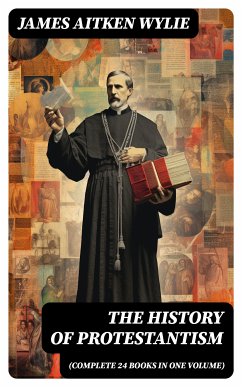James Aitken Wylie's monumental work, 'The History of Protestantism,' is a comprehensive examination of the Protestant Reformation spread across 24 books compiled in one volume. Wylie meticulously details the origins, developments, and impacts of Protestantism, providing a thorough analysis of key figures, events, and doctrines within the Protestant movement. Written in a scholarly yet accessible style, this book offers readers a deep dive into the religious, political, and social contexts that shaped Protestantism throughout history. Wylie's narrative is infused with a passionate defense of the Protestant faith, making this work not only informative but also inspirational for those interested in religious history and theology. Overall, 'The History of Protestantism' serves as an indispensable resource for anyone seeking a thorough understanding of the Protestant Reformation and its legacy.
Dieser Download kann aus rechtlichen Gründen nur mit Rechnungsadresse in A, B, BG, CY, CZ, D, DK, EW, E, FIN, F, GR, H, IRL, I, LT, L, LR, M, NL, PL, P, R, S, SLO, SK ausgeliefert werden.









